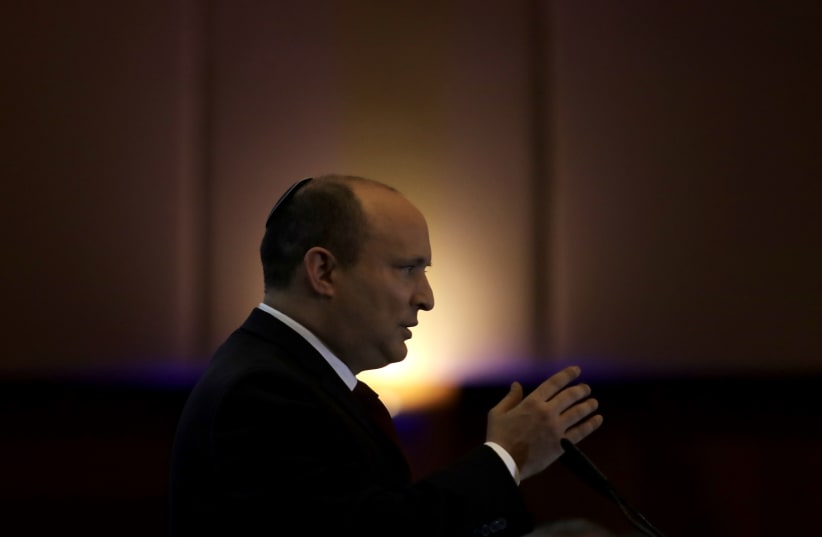When Prime Minister Naftali Bennett’s government was established in June, the eight parties that built the most diverse coalition in Israel’s history promised to make every decision by consensus and maintain political quiet.
At first they succeeded. They passed the first state budget in three years and did their best to avoid stepping on one another’s toes.
But in recent months, one crisis has followed another. Parties and individual MKs have rebelled, boycotted and sabotaged key votes and taken revenge.
In less time than it takes a baby to be born, animosity between the coalition parties has intensified over the past eight months. In private conversations, MKs in rival parties mock their coalition colleagues in increasingly intense language.
But this week, those insults have become public. Defense Minister Benny Gantz called Labor and Meretz ministers post-Zionist. Finance Minister Avigdor Liberman called them populists who are ready to destroy the Israeli economy.
A briefing from “senior officials in the coalition” against Gantz was distributed by Bennett’s own aides while he was meeting with Gantz. The briefing mocked Gantz, accusing him of behaving childishly, caring more about helping his army cronies than about Israeli security and aiming to return to a government led by opposition leader Benjamin Netanyahu.
And to top it, resigning minister Eli Avidar delivered to Bennett what in the current coalition is the ultimate insult, describing him as identical to Netanyahu.
Avidar will now be an independent MK and the coalition’s ninth faction, making a challenging coalition increasingly unworkable. The challenge from Avidar joins fights with Blue and White over pensions for IDF officers, with Labor over the minimum wage, with Ra’am (United Arab List) over tax breaks for Bedouin communities and with Meretz over the citizenship bill and the Evyatar outpost.
Blue and White MK Alon Tal, who has been close to Gantz for decades, lamented that instead of the centrist bloc setting the agenda, centrists have been marginalized, while the right- and left-wing edges have been driving the agenda in the Knesset.
Parties across the spectrum have realized that only when they threaten and take extreme steps do they get what they want. After he was taken for granted for too long, Gantz ended up having to do the same with his current rebellion, which is very out of character for him.
“Gantz asked politely, then less politely and still wasn’t taken seriously until yesterday,” Tal said. “It’s a pity these are the rules of the game. We were polite until now. We are dealing with matters of substance. It’s wrong to assume that if you’re moderate, you’re weak. Don’t expect moderation to be a lack of conviction – on the contrary.”
Tal said he hopes the coalition parties go back to working with their government and abide by the rules of the game.
In an effort to do that, Bennett invited party heads to meet with him on Thursday. But it may be too late. The Knesset will be voting Wednesday on plenty of opposition bills, and the coalition has no way of stopping them without the eight votes of Blue and White.
There are many key bills the coalition wants to pass before the Knesset recesses on March 13.
If the coalition makes it that far, it will have until the vacation ends on May 9 to get its act together. By then, it will have to figure out how to go back to deciding by consensus, not crises.

